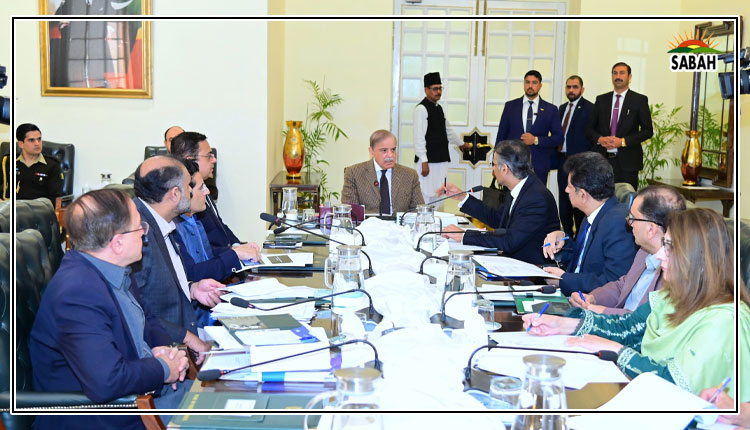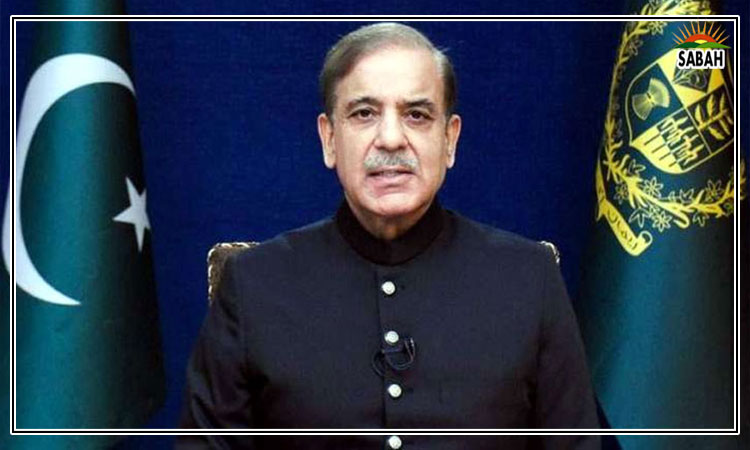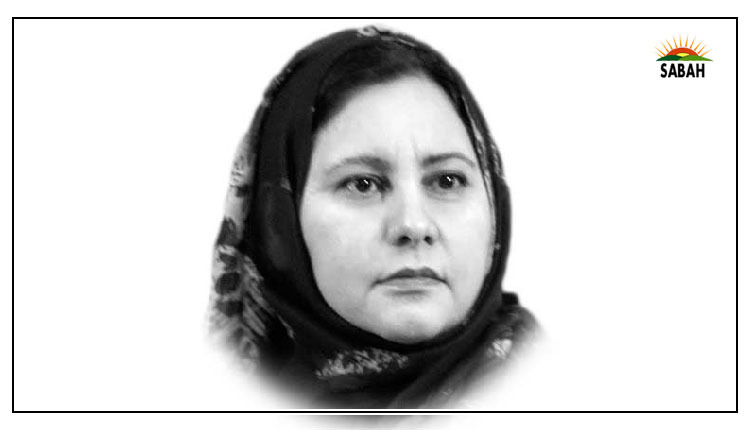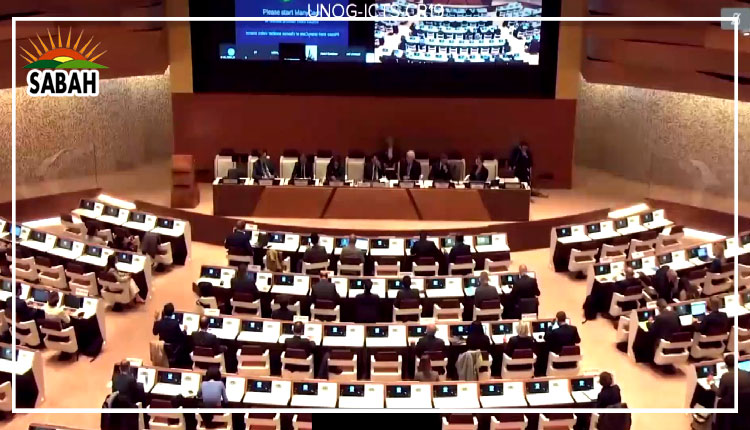UN launches fresh appeal of over $800 million for Pak on the basis of updated on ground need assessment of flood situation in country
GENEVA/ISLAMABAD, Oct 04 (SABAH): The United Nations has launched a fresh appeal of over eight hundred million dollars for Pakistan on the basis of updated on ground need assessment of the flood situation in the country.
Ceremonies to this effect were simultaneously held in Islamabad and Geneva on Tuesday.
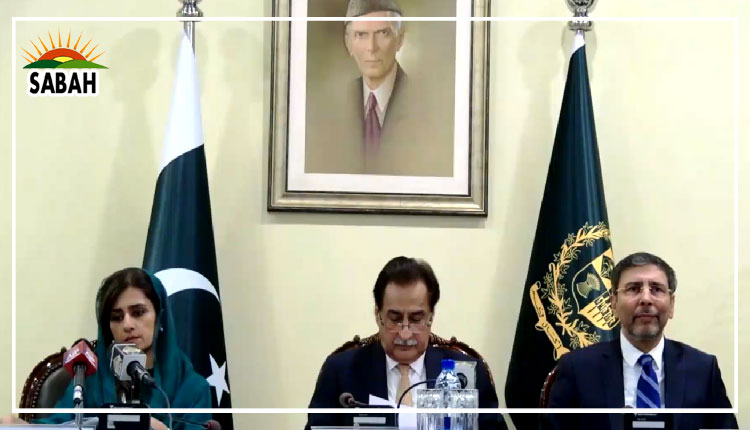
In his remarks, Minister for Economic Affairs Sardar Ayaz Sadiq emphasized for sustained and long-term support on the part of world community to Pakistan recover from the climate induced calamity. The Minister said at present the relief efforts are going on in the flood affected areas and when the water recedes, the rehabilitation work will be started which cannot be finished in months but it will take years.
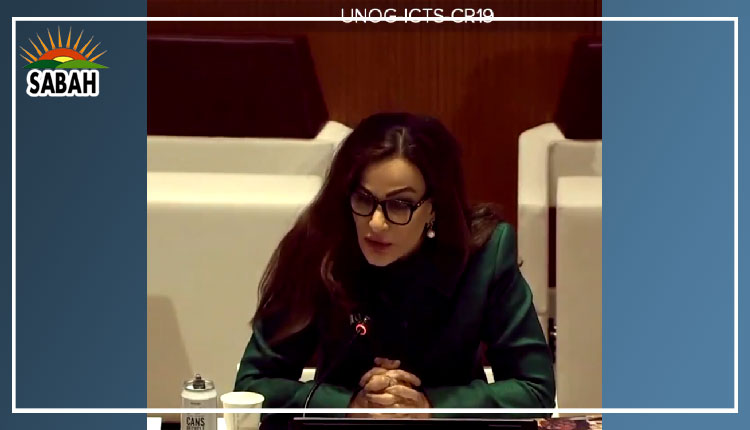
He said if Pakistan is left alone at this time, this will set a wrong precedent as Pakistan is not responsible for this climate catastrophe. He said the world has to wake up and step up efforts for climate change. The climate change fund has to be utilized in these kinds of catastrophes.
Sardar Ayaz Sadiq thanked those who extended support to Pakistan in this difficult hour; saying more on their part will make it easier for Pakistan to cope with the disaster and save precious lives.
In her remarks, Minister of State for Foreign Affairs Hina Rabbani Khar said the world must respond to the needs of the people affected by the climate change. He said it is our job to make sure that the flood victims in Pakistan are not only equipped to survive this crisis but they also thrive afterwards.
Under Secretary General for Humanitarian Affairs and Emergency Relief Coordinator Martin Griffiths said the people of Pakistan are bearing the brunt of the world’s inaction to face climate change or prepare for its consequences. He said Pakistan has not caused this crisis for which they are undeserving victims. He said we need to deliver shelter and essential household items to over two million families.
Martin Griffiths emphasized for standing with Pakistan at this difficult hour.
Federal Minister for Climate Change Senator Sherry Rehman is in Geneva to launch a 2nd Humanitarian Appeal with the UN Office for the victims of the devastating floods in Pakistan.
Speaking at the event, the Federal Minister stated that, “This Second Appeal urgently seeks US$ 816 million to provide prioritized multi-sectoral aid. There are a total of 20.6 million people still in need. This humanitarian appeal targets protection to 9.5 million people with focus on the 34 districts in all four provinces.” “We are gathered here to reboot your compassion simply because the numbers are too staggering to service for any one country alone. 33 million people affected are 7 million more than the entire population of Australia. Imagine rescuing, feeding, sheltering, resettling an entire country? We have been working around the clock, flat out through the aftershocks, but just to pick up the pieces. We will literally need a new coalition of the willing. It was done for war and it can be done to save millions of lives.” “As the magnitude of the tragedy filters in, it is becoming clear to all that this is the meta-climate event of a century, crossing all records for the whole world, not just for Pakistan. In the monster downpour that inundated 1/3rd of the country, approximately 1,700 people have lost their lives and close to 13,000 are injured. 7.9 million are still displaced. Women and children make up nearly 70 percent of the 33 million affected, One-third of all recorded deaths and injuries are children.
Sherry Rehman implored the international community on the critical nature of the climate crisis. She remarked, “34 districts are crisis affected with 46,000 square kilometers still in fluid conditions and an estimated 20.6 million people are in need. This number is more than the size of Switzerland and Portugal’s population combined. These are not just statistics. These are real people on the ground, whose eyes are still vacant from shock, who have overnight been turned into poster-children of extreme vulnerability, with futures that are entirely precarious. For women, these are layered with another burden of compounded social fragility and campsite predations.”
Emphasizing on the nature of the climate change-induced disaster, Minister Rehman said, “Despite 16 weeks since the first monsoon rain, we are still in the lifesaving response stage, as this year, the flooding was of all types; flash flooding, hill torrents, and the monster monsoon. They all clustered into one climate disaster to create new records of extreme volumes, volatility and unpredictability. With 11 districts still under water, many still seek aid hubs for food, clean water and medical assistance, and tragically even dry land, to bury their dead. And because large swathes of the country, particularly in the south, which is lower than sea level now, are still festering under huge swampy lakes of water which has nowhere to drain, 8.2 million people require urgent medical services, while 4 percent of the disaster affected population is actually pregnant. We are urgently in need of life-saving medicines, reproductive health kits, among a host of other needs specified in the appeal document as more than 1,400 health facilities have been severely damaged.”
As winter approaches soon, the Federal Minister spoke on the critical speed needed for response, “Many of those affected have been left to the mercy of the open sky, shelters have been made available for 598,000 people only, while 7.9 million still scramble for dry land to pitch tarpaulins, which we desperately need. 4 million people live in areas where temperatures turn sub-zero, and even in the warmest affected areas, the mercury typically falls below 10 C. Response to Nutrition needs have to be scaled-up, as 7.1 million people still are in need, and 3.9 million targeted with this appeal, with most priorities identified for severe and acute malnutrition. With FAO surveys suggesting 9.4 million acres of standing crops inundated and affected, this will directly put at risk 14.6 million people, who live and work very close to nature, in the line of a food sector and agriculture crisis. Livelihoods will continue to face aftershocks, but 15.4 million more people will be pushed into hardscrabble poverty. Relief efforts have been slowed down because the fury of the floods have ripped out over 13,000 km of roads and torn down 440 bridges all over the country. Railway lines are still not fully restored.”
Speaking on the complexity of impact of the flood disaster, Minister Rehman said, “Meeting the needs on the ground even for the relief phase is beyond the overstretched capacities of any one country, especially one that has already been paying for climate losses to the tune of 9.1 % of our GDP. Our export crops are almost all wiped out, and we will even need to import food after this flood. Given the global energy shortages, our import bills are critically impacted, especially as we compete with far richer countries to pay for clean gas on the international market. With debt payments looming, and farmers and other impacted sectors already demanding loss and damage compensations, the exogenous shock to the economic system for mobilising resources is critically high. We have no space to give our economy a stimulus package, which would create jobs, and provide people with the sustainable incomes they need. We are still in a long, relentless struggle to save lives, and get the joint surveys out wherever we can access affected areas. We are moving every available resource to the lifesaving effort. The Government of Pakistan has repurposed all of its existing budgetary envelopes, including all climate adaptation and resilience funds, to continue to provide ex-gratia compensations to affected households, as the toll of fatalities and loss and damage keep rising. To ensure that the poor have access to immediate cash relief, over US$264 million has been dispersed to 2.47 million people from the affected populations via our BISP program, with complete transparency. This is just the tip of the iceberg; after the immediate relief effort, we will have to look towards rehabilitation and resilience building, which will of course require funding. All we are saying is please don’t leave us alone to face the frontline of what the UNSG said was an outcome of mankind’s war on nature. We have fought enough in another 20 year-long militarized war next door to us, where we lost 80,000 people to the war against violent extremism. But we are NO match for nature’s long war on our doorstep. 300 million USD per day was spent on the longest military war. Just three days of war funding will save millions more in this appeal.
Minister Rehman thanked the UN RC Julien Harnies who has been living almost permanently in the vortex of the crisis, for his empathy and stamina, Ramesh Rajasingham, Head and rep of OCHA-Geneva, Martin Griffiths, Under Secretary General for humanitarian affairs. She also thanked colleagues from the humanitarian community, and Excellencies from the resident missions in Geneva, with heartfelt appreciation for clustering with government agencies for a heavy lift on the ground. Minister Rehman thanked Dr. Tedros Adhanom Ghebreyesus, Director General-WHO, for his leadership and high-level attention to the extreme health risks in Pakistan.
Under Secretary General for Humanitarian Affairs and Emergency Relief Coordinator Martin Griffiths said the people of Pakistan are bearing the brunt of the world’s inaction to face climate change or prepare for its consequences. He said Pakistan has not caused this crisis for which they are undeserving victims. He said we need to deliver shelter and essential household items to over two million families. Martin Griffiths emphasized for standing with Pakistan at this difficult hour.
Director General of WHO Dr. Tedros Adhanom gave an update on the health situation in the flood affected areas. He said floods have approximately damaged ten percent of country’s health facilities. Besides, stocks of medicines and medical supplies are limited or have been washed away. He said we must move together to support Pakistan.



